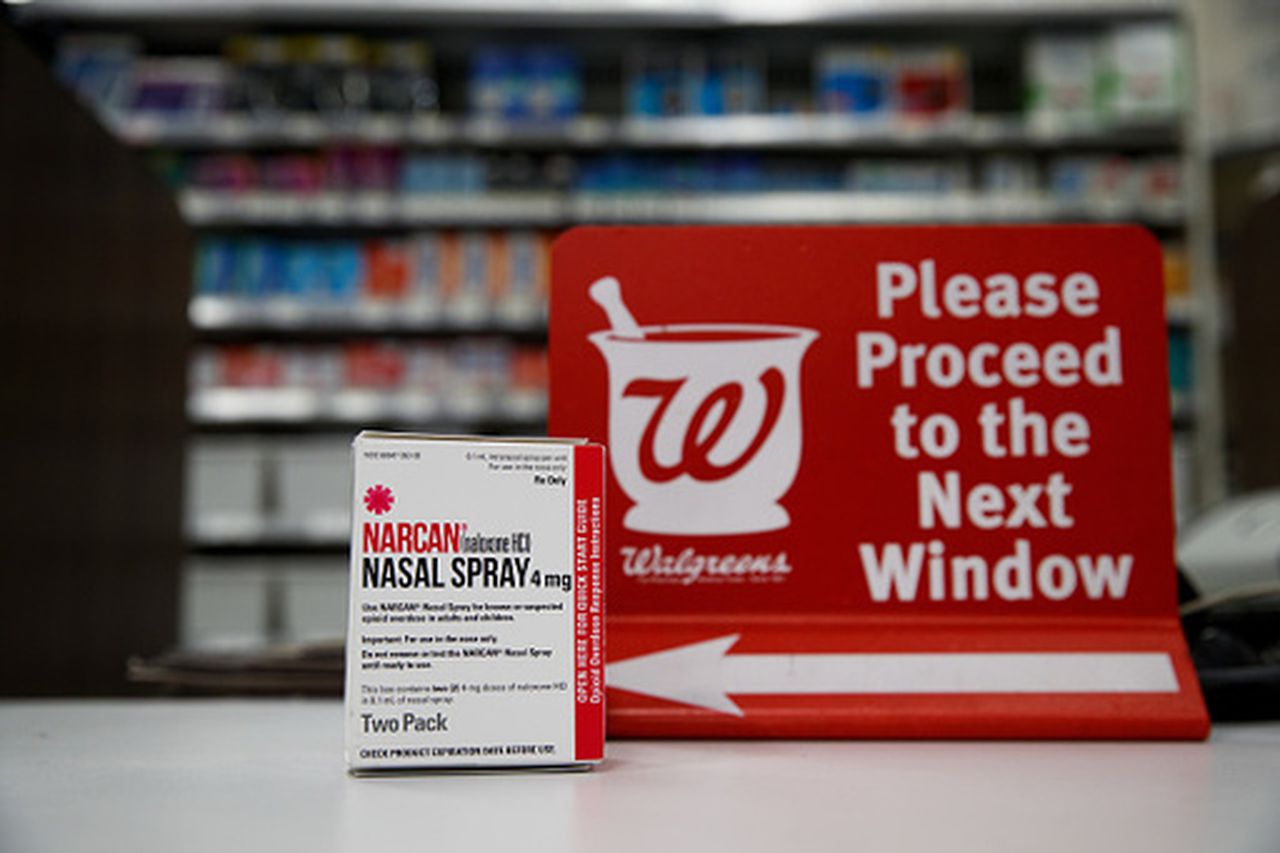Pharmacies now stock Narcan over-the-counter, but harm reductionists worry about who benefits
A powerful overdose reversal medication hit pharmacy shelves this week, signaling a new tide for harm reduction in the United States, which saw a surge of drug overdoses in the last two years.
For $44.99, or $22.50 per dose, anyone can purchase Narcan from major retailers like CVS, Walgreens, Rite Aid and Walmart without a prescription, following approval by the U.S. Federal Drug Administration of its over-the-counter distribution. The life-saving nasal spray became available at such pharmacies in September.
“The fact that we’re eliminating some of the red tape, it’s huge,” Carla Sofronski, an organizer with Pennsylvania Harm Reduction Coalition (PHRC), said.
Sofronski’s sister died of an overdose 20 years ago. It didn’t have to be that way, Sofronski said, for her sister or for the thousands of people who have lost their lives to overdose in Pennsylvania, which has one of the highest overdose death rates in the country.
A state agency estimated 36.2 overdoses per 100,000 residents in 2022. All but one county in the state reported overdose incidents.
In terms of overdose deaths, the Centers for Disease Control logged 43.2 deaths per 100,000 residents in 2021, making Pennsylvania the state with the 10th-highest incidents of fatal overdoses in the country.
PHRC distributes Narcan at no cost throughout the state and provides other vital harm reduction services. PHRC organizers have been known to drive up to two hours to secure a supply of Narcan for residents. This is necessary especially for those living in rural parts of the state with little to no access to a pharmacy, much less a doctor who will write them a prescription for Narcan, Sofronski explained.
“We’re in the middle of a public health crisis that is only getting worse, not getting better, unfortunately,” she added. “It’s really everyone’s responsibility.”
The responsibility has largely fallen to mutual aid groups, grassroots organizations and community healthy workers over the years. As the opioid epidemic accelerated and deals between the FDA and pharmaceutical companies were delayed, people have come to rely on these groups for free life-saving medicine.
Being a person who uses drugs carries a stigma that deters people from the pharmacy, she said.
“For it to be out there in the public says to people ‘It is okay to keep this in your first aid kit and nobody will judge you,’ and that’s huge because our numbers look like this partly because of stigma,” Sofronski said.
Stigma almost deterred Jennifer Twyman from relying on pharmacies plenty of times. Twyman has been an organizer at Vocal-KY, a harm reduction organization based in Kentucky since its founding in 2022, but she can remember standing in line for hours at her local Kroger pharmacy waiting for suboxone. Pharmacists avoided eye contact with her and deliberately delayed filling her prescription, she said.
“I talk about it every day,” Twyman said. “The judgment that we as people who use drugs carry around with us is debilitating and it takes people’s lives.”
Very few of the pharmacies in Kentucky carry Narcan — a medicine that has come to be the difference between life and death for the people Twyman serves — even after a standing order allowing pharmacists in Kentucky to dispense it without a prescription. And, for almost $45, the people who need it most likely can’t afford it.
“They talk about [over-the-counter Narcan] like we’ve solved the problem. This might make it more accessible for people who have money, but what about people who don’t?” Twyman said. “We’ve got to keep giving people the free stuff.”
For Daniel Garrett, a volunteer with Tennessee Harm Reduction, cost and stigmatization are secondary concerns to who will see profits from new Narcan sales. He worries that companies like Emergent BioSolutions, makers of Narcan, are capitalizing on a decades-long struggle for greater public health and safety.
Harm reduction has been around since the 1980s with the express goal of improving public health and safety.
“Soulless corporate entities like this, they don’t care about us. The money they earn, it doesn’t go back into programs that support drug users,” he said. “I wish other options will become available.”
